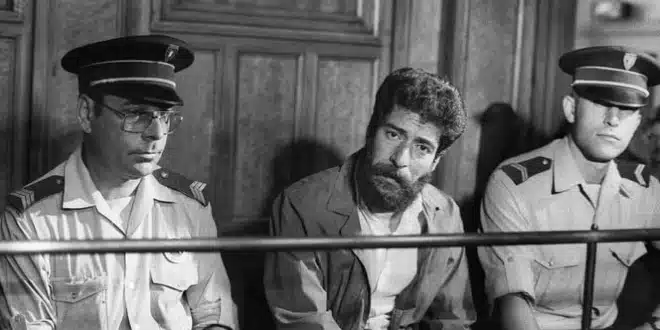A French court has approved the conditional release of Georges Ibrahim Abdallah, a Lebanese militant who has spent more than 40 years in prison for his role in the 1982 assassinations of two foreign diplomats. The ruling, issued on Thursday, marks a major development in one of France’s most politically charged and enduring imprisonment cases.
A Notorious Case Dating Back to the 1980s
Abdallah, now 74, was convicted in 1987 and sentenced to life in prison for the murders of U.S. military attaché Lieutenant Colonel Charles Ray and Israeli diplomat Yacov Barsimantov. The attacks, carried out in Paris in 1982, were attributed to the Lebanese Armed Revolutionary Factions (LARF), a group Abdallah co-founded with stated pro-Palestinian aims. He has remained a central figure of controversy ever since, often cited in debates about justice, political prisoners, and international pressure on domestic legal decisions.
Although Abdallah became eligible for parole in 1999 under French law, his requests for release have repeatedly been denied, partly due to objections from the U.S. and Israel. Several French interior ministers over the years have declined to sign the necessary administrative expulsion order that would allow Abdallah to return to Lebanon, effectively keeping him in detention.
Conditions for Release and Political Ramifications
The latest ruling grants Abdallah parole on the condition that he be deported from French territory. The court emphasized that his continued imprisonment, despite having served the required time for eligibility, no longer met legal justification. The decision is still subject to potential appeal by the prosecution, which has previously opposed his release on national security grounds.
Abdallah’s legal team welcomed the ruling as long overdue. Supporters of Abdallah, particularly in Lebanon and among pro-Palestinian groups, have regularly organized rallies demanding his release, calling him a symbol of anti-imperialist resistance. In contrast, U.S. and Israeli officials have repeatedly expressed concern over any plans to release him, describing Abdallah as a terrorist who should not be freed.
Broader Implications and Reactions
The court’s decision may stir diplomatic tension, especially with Washington and Tel Aviv, both of which have lobbied French authorities for years to keep Abdallah imprisoned. Human rights organizations, however, argue that his prolonged detention—well beyond eligibility for release—violated legal norms.
Abdallah’s potential return to Lebanon is likely to reignite political discussions there as well, especially amid ongoing regional instability. Lebanese officials have previously indicated their readiness to welcome him home.
If the release proceeds as planned and Abdallah is deported without further delay, it will close a chapter on one of the longest-running incarceration cases involving political violence in modern French history. Whether it brings resolution or further controversy remains to be seen.


